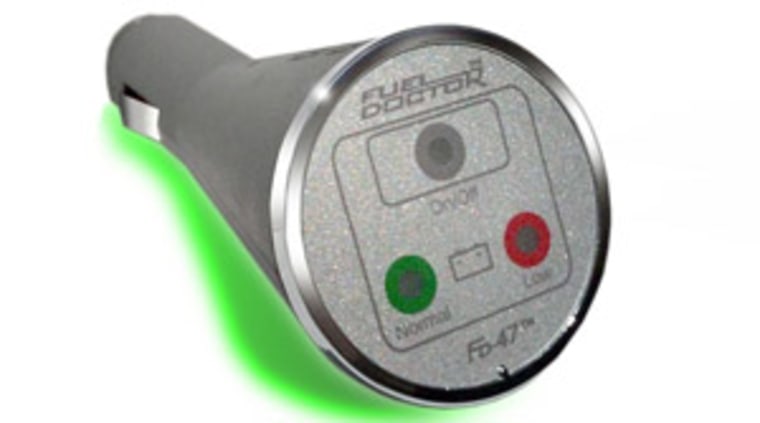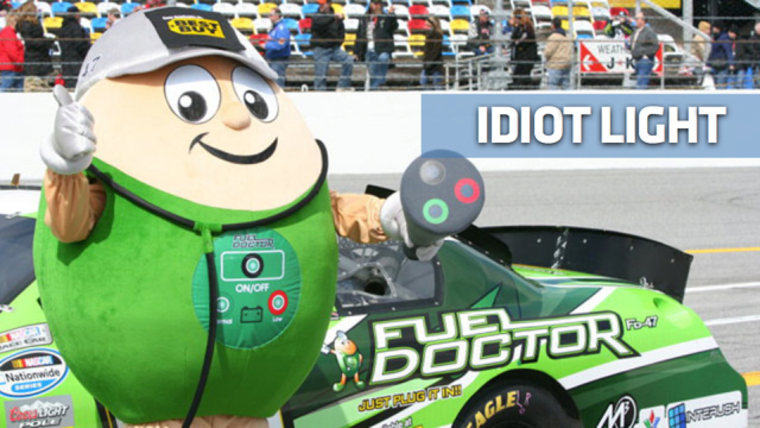Like the sun rising in the east or Donald Trump embarrassing himself, inevitably bring out a clutch of hucksters selling gizmos that magically boost fuel efficiency. They're scams, yet people still get suckered by the bushel.
Whether they or , black-magic gas sipping devices always involve the same trope of some secret piece of technology withheld by auto execs after a pleasurable evening under satin sheets with Big Oil. The real professionals include not just studies showing how effective their product can be, but several testimonials from people who gave them a try, and gosh darn if it didn't save so much gas they'd recommended it to all their spouse-cousins.

The current leading purveyor in this field is Fuel Doctor, a California company that's hawking its $59.99 dongle in Best Buy stores and sponsors a NASCAR truck team. The FD-47 supposedly "conditions" electrical current from an older vehicle's cigarette lighter, smoothing the flow, something something unicorns and bingo — fuel saved. Or in its own words:
Conditioned and clean power allows the vehicle's electronic control unit (ECU), fuel injection and engine timing equipment to operate more efficiently. When the vehicle's engine runs more efficiently it will require less fuel, produce more power and have reduced exhaust emissions (reduced CO2).
Science-y. And Fuel Doctor's own site has the requisite testimonials and studies to show how effective it is. As far as this field goes, actually posting the reports from the independent labs counts as a welcome step forward.
But when the tests aren't paid for by Fuel Doctor, the results aren't so great. and both found it didn't work. While Fuel Doctor basically , hobbyists who've taken apart the Fuel Doctor dongle found .
And as for those studies and testimonials? Fuel economy depends upon the driver as much as the machine; outside conditions can produce large swings, and for many drivers, just expecting something to boost fuel economy can alter the way they drive. None of the Fuel Saver tests highlighted on its site were "blind" studies — the drivers always knew whether they had the device or not. When similar devices are tested in a lab where actual emissions can be monitored, as the U.S. Environmental Protection Agency has , none of .
Yet they persist, because many people live by author Arthur C. Clarke's maxim that "any sufficiently advanced technology is indistinguishable from magic." If you want to save fuel, put some money in maintaining your car and drive slower. Just because something sounds technical doesn't mean its magic.
•
•
•
